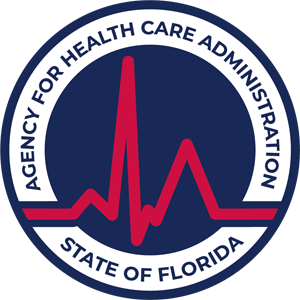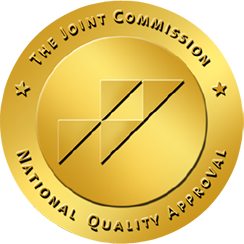
Lantana, Florida, United States
Mark Behavioral Health
Verified
Verified
This provider’s information has been quality-checked by Recovery.com’s Research Team for accuracy and completeness, including center verification through appropriate third-party organizations.
Joint Commission Accredited
The Joint Commission accreditation is a voluntary, objective process that evaluates and accredits healthcare organizations (like treatment centers) based on performance standards designed to improve quality and safety for patients. To be accredited means the treatment center has been found to meet the Commission's standards for quality and safety in patient care.
Provider's Policy
Mark Behavioral Health works with most major PPO insurance plans. It can cover the cost of treatment after deductible. Our insurance specialists offer free, confidential benefit verification to give you a clear understanding of your coverage and help you make the most of your insurance for treatment at our facility.
Estimated Cash Pay Rate
The cost listed here ($15,000 - $45,000) is an estimate of the cash pay price. Center pricing can vary based on program and length of stay. Contact the center for more information. Recovery.com strives for price transparency so you can make an informed decision.
Highlights from the Center
Highlights
These highlights are provided by and paid for by the center.
Perfect for Professionals
Trauma-Informed Care
Private Rooms Available
Boutique
About Mark Behavioral Health
Mark Behavioral Health partners with patients in navigating complex mental health challenges. They deliver expert, science-driven care for individuals struggling with mental health concerns, including grief, suicidal ideation, and other severe mental health conditions. Their services span crisis stabilization, residential treatment, and even life beyond treatment. They believe in the power of personalized attention, which is why they maintain a small patient load. Whether in need of urgent intervention or long-term guidance, the thorough treatment at Mark Behavioral Health helps patients manage their mental health issues for a long period of time.
Receive Personalized Care Because Each Patients’ Story Matters
Patients’ stories are of utmost importance to the team at Mark Behavioral Health. At the core of their treatment is a therapy called dialectical behavior therapy (DBT)--- it helps patients manage emotions, behaviors, and relationships. They also understand that past experiences like trauma can affect mental health, so they take that into account when creating a treatment plan. The team takes the time to get to know each person, not just their symptoms, to address what matters most to each patient. And because nutrition and wellness are undoubtedly connected to mental health, they incorporate tailored plans to incorporate those into their care.
Benefit from Big Amenities, but Small-Scale Attention
Mark Behavioral Health has all the amenities of a big facility, but in a small-facility setting. With just 14 beds, each patient feels truly seen and heard. The spacious bedrooms and calming communal areas are designed for comfort and safety— a place where patients can truly breathe. Patients also have access to outdoor spaces and engage in fun activities that focus on their well-being because recovery is focused on rebuilding their whole life and not just fixing symptoms.
Read More
Insurance Accepted
Provider's Policy:Mark Behavioral Health works with most major PPO insurance plans. It can cover the cost of treatment after deductible. Our insurance specialists offer free, confidential benefit verification to give you a clear understanding of your coverage and help you make the most of your insurance for treatment at our facility.
Get Compassionate Treatment without Judgment
Mark Behavioral Health has created a safe, affirming, and inclusive atmosphere where the LGBTQIA+ community can explore their mental health and receive the care that they deserve. Patients can expect to receive compassionate and understanding care without bias or discrimination. With trained professionals who understand the specific issues and experiences LGBTQIA+ individuals face, their therapies are tailored to their specific needs and goals.
Explore Complex Grief
If patients are grappling with profound grief that seems endless, they are not alone. Mark Behavioral Health provides a nurturing space to explore the complex feelings of grief without judgment, allowing each person to heal at their own pace. Patients learn to manage the daily pain and challenges that come with life after loss, while finding solace in a community of people who share similar experiences.
Process Sexual Trauma with Compassion
Sexual trauma can carry a heavy weight, but healing is possible. Their specialized program provides evidence-based therapies designed to help process trauma and develop coping skills. Mark Behavioral Health is a place where judgment is absent and compassion guides every interaction. Through highly personalized care, patients break free from the grip of trauma.
Unlock Mental Potential through Nutrition
What people eat profoundly impacts their mental health, and Mark Behavioral Health has unlocked what it takes to become physically and emotionally healthier through their nutritional counseling program. Expert dietitians work one-on-one with clients to create personalized nutrition plans that boost mood and energy level naturally, improve cognitive function, and cultivate healthier eating habits that nourish the mind as much as the body.

Center Overview
Estimated Cash Pay Rate
Older Adults
Addiction and mental health treatment caters to adults 55+ and the age-specific challenges that can come with recovery, wellness, and overall happiness.
Young Adults
Emerging adults ages 18-25 receive treatment catered to the unique challenges of early adulthood, like college, risky behaviors, and vocational struggles.
LGBTQ+
Addiction and mental illnesses in the LGBTQ+ community must be treated with an affirming, safe, and relevant approach, which many centers provide.
Men and Women
Men and women attend treatment for addiction in a co-ed setting, going to therapy groups together to share experiences, struggles, and successes.
Midlife Adults
For adults ages 40+, treatment shifts to focus on the unique challenges, blocks, and risk factors of their age group, and unites peers in a similar community.
Mild Disabilities
Adults with mild physical or intellectual disabilities receive treatment catered to their specific needs in a safe and clinically supportive environment.
Professionals
Busy, high-ranking professionals get the personalized treatment they need with greater accommodations for work, privacy, and outside communication.
Veterans
Patients who completed active military duty receive specialized treatment focused on trauma, grief, loss, and finding a new work-life balance.

Treatment Focus
This center specializes in primary mental health treatment and offers programs for co-occurring substance use. You receive collaborative, individualized treatment for whole-person healing.
Treatment
Specializations
Schizophrenia
Schizophrenia is a serious mental health condition that causes hallucinations, delusions, and disordered thinking.
Grief and Loss
Grief is a natural reaction to loss, but severe grief can interfere with your ability to function. You can get treatment for this condition.
Personality Disorders
Personality disorders destabilize the way a person thinks, feels, and behaves. If untreated, they can undermine relationships and lead to severe distress.
ADHD, ADD
ADHD is a common mental health condition caused by dopamine imbalance. Common symptoms include inattention, hyperactivitiy, and impulsivity.
Depression
Symptoms of depression may include fatigue, a sense of numbness, and loss of interest in activities. This condition can range from mild to severe.
Trauma
Some traumatic events are so disturbing that they cause long-term mental health problems. Those ongoing issues can also be referred to as "trauma."
Treatment Services
Licensed Primary Mental Health
Some primary care providers offer mental health diagnosis and treatment. This can prevent patients from developing more serious conditions.
Residential
In a residential rehab program, patients live onsite, with access to daily treatment and 24-hour care. An average stay is 30-90 days.
Approaches
Evidence-Based
A combination of scientifically rooted therapies and treatments make up evidence-based care, defined by their measured and proven results.
Holistic
A non-medicinal, wellness-focused approach that aims to align the mind, body, and spirit for deep and lasting healing.
Individual Treatment
Individual care meets the needs of each patient, using personalized treatment to provide them the most relevant care and greatest chance of success.
Strengths-Based
Providers using a strengths-based philosophy focus on the positive traits of their patients, creating a positive feedback loop that grows confidence.
Therapies
1-on-1 Counseling
Patient and therapist meet 1-on-1 to work through difficult emotions and behavioral challenges in a personal, private setting.
Meditation & Mindfulness
A practiced state of mind that brings patients to the present. It allows them to become fully aware of themselves, their feelings, and the present moment.
Rational Emotive Behavior Therapy
A type of cognitive therapy that identifies negative self-defeating thoughts and behaviors, rewriting beliefs to be positive, empowering, and present.
Mindfulness Therapy
This ancient practice can be mental, emotional, and even spiritual. In meditation, you focus your attention on the present moment without judgement.
Adventure Therapy
This experiential approach uses the physical and emotional challenges of outdoor activities as tools for personal growth.
Attachment-Based Family Therapy
ABFT is a trauma-focused therapy that teaches you to form healthy relationships by rebuilding trust and healing attachment issues formed in childhood.
Art Therapy
Visual art invites patients to examine the emotions within their work, focusing on the process of creativity and its gentle therapeutic power.
Experiential Therapy
With this approach, patients heal by doing. Therapists help patients process difficult emotions to speak, using guided activities like art or dance.
Eye Movement Therapy (EMDR)
Lateral, guided eye movements help reduce the emotional reactions of retelling and reprocessing trauma, allowing intense feelings to dissipate.
Family Therapy
Family therapy addresses group dynamics within a family system, with a focus on improving communication and interrupting unhealthy relationship patterns.
Conditions We Treat
Schizophrenia
Schizophrenia is a serious mental health condition that causes hallucinations, delusions, and disordered thinking.
Grief and Loss
Grief is a natural reaction to loss, but severe grief can interfere with your ability to function. You can get treatment for this condition.
Personality Disorders
Personality disorders destabilize the way a person thinks, feels, and behaves. If untreated, they can undermine relationships and lead to severe distress.
ADHD, ADD
ADHD is a common mental health condition caused by dopamine imbalance. Common symptoms include inattention, hyperactivitiy, and impulsivity.
Anxiety
Anxiety is a common mental health condition that can include excessive worry, panic attacks, physical tension, and increased blood pressure.
Depression
Symptoms of depression may include fatigue, a sense of numbness, and loss of interest in activities. This condition can range from mild to severe.
Obsessive Compulsive Disorder (OCD)
OCD is characterized by intrusive and distressing thoughts that drive repetitive behaviors. This pattern disrupts daily life and relationships.
Post Traumatic Stress Disorder
PTSD is a long-term mental health issue caused by a disturbing event or events. Symptoms include anxiety, dissociation, flashbacks, and intrusive thoughts.
Trauma
Some traumatic events are so disturbing that they cause long-term mental health problems. Those ongoing issues can also be referred to as "trauma."
Substances We Treat
Co-Occurring Disorders
A person with multiple mental health diagnoses, such as addiction and depression, has co-occurring disorders also called dual diagnosis.
Aftercare
Experience
Personal Amenities
Amenities
Special Considerations
Healthy Meals are provided
Great food meets great treatment, with providers serving healthy meals to restore nutrition, wellbeing, and health.
LGBTQ group
Group therapy unites LGBTQ+ patients in a safe and culturally competent setting, encouraging peer support under the expert leadership of a therapist.
Activities
Off-Site Activities
Professional Staff

Kristina Netherland
Executive Clinical Director
LMHC, MAC, NCC, QS

Dr. Antonio De Filippo
Medical Director
MD

Kristina Dygulski
Primary Therapist
LMHC, QS

Veronica LaChance
Director of Admissions
View More Team Members
Learn more about Mark Behavioral Health
Testimonial
Entrusting yourself or a loved one to others for mental health care can be daunting, yet with Mark Behavioral Health, those fears are alleviated. Not only is the facility aesthetically pleasing, but the true gem lies in its dedicated staff and therapists. It’s clear that each person there is genuinely committed to helping patients improve, which is incredibly valuable.
Justin D.
We love hearing about your treatment experience
Help individuals and families seeking treatment by sharing your first-hand experience with this treatment provider. Review Guidelines.














































